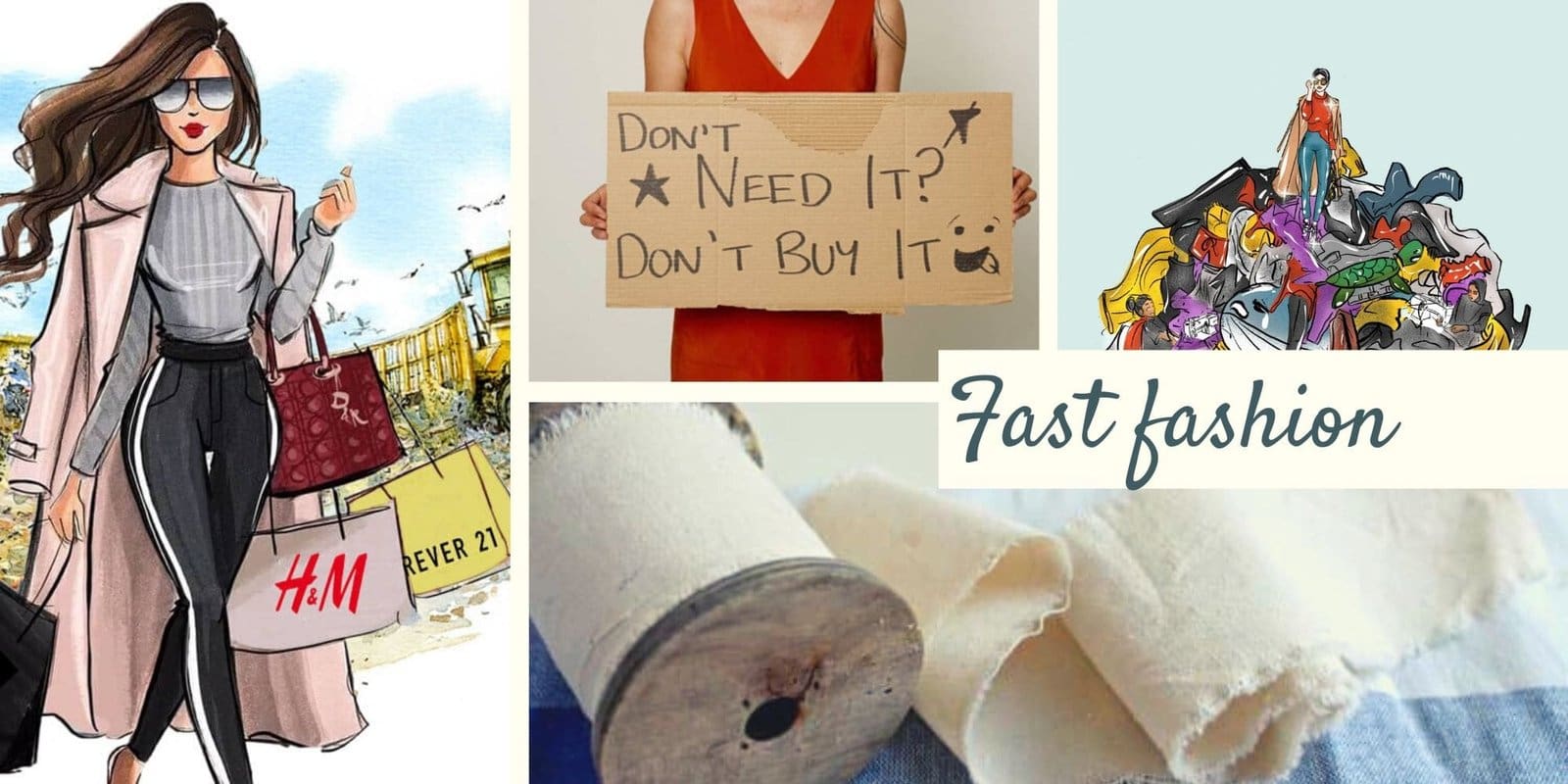“Look closely at the present you are constructing. It should look like the future you are dreaming of.” – Alice Walker
The Ecological Agenda sits within the context of planetary boundaries as the safe operating space for humanity. We live in the anthropocene i.e. an era where humans are the dominant reason for climate change. So this agenda talks about how we can honor the environment by making more conscious purchase decisions as consumers and by educating ourselves on the raw materials that are used to make our garments and how that impacts the Earth.
Fast Fashion and its Causes

Fast fashion is the term that we use to describe clothing items and their quick movement from the runway to our wardrobes. Literally going by its name, there has been an increase in the pace at which fashion is delivered to the consumers, since the beginning of 2000’s. If we go to the bottom of this issue, we’ll realize how our constant “want” for new trends is the root cause of this movement. Zara and other fast fashion brands hide quite a dark picture behind their bright lit stores and super speedy supply chains. According to a study, it was found that Zara launches more than twenty collections in a year. Earlier, brands used to generally design two or three collections per year according to the seasons. This rapid rate at which consumers are being provided with new options and designs feeds into their desire to buy more, therefore becoming a part of this toxic cycle. What we fail to see is that there are a lot of social, ecological, economical and cultural agendas related to this issue. Apart from being given various options to choose from, one of the reasons for this concerning practice is that the majority of the consumers cannot afford the clothing provided by luxury brands. Fast fashion brands read the consumers’ minds and make crazy amount of profits out of our desire by providing similar trends as luxury clothing but at a consumer friendly price. But putting the blame entirely on the brands wouldn’t be fair to them either because if we notice at our personal levels, I’m pretty sure we’ve all noticed how repeating clothes is actually “looked down upon”. Due to this, people have reduced the number of times they repeat an outfit, therefore increasing the need for more options.
Solution: Slow Clothing!

In Jane Milburn’s words “Slow clothing is a philosophy. It is a way of thinking about choosing and wearing clothes to ensure they bring meaning, value and joy to everyday.” Slow fashion basically addresses slowing down the rate at which the fashion industry is moving today by decreasing the clothing production and consumption rate and instead supports the idea of longevity of our clothing.
The first step to slow this cycle down would be to educate ourselves regarding our buying habits and asking ourselves why we’re buying something before we make a purchase because what we don’t realize is that we, as consumers, have so much power to improve the situation if we try to makeup for the loss by just being more conscious, more aware and more empathetic towards the Earth. Our priorities should focus on the philosophy of “less is more”, high quality clothing, sustainable materials, and ethical clothing production as soon as possible. Supporting local designers and traditional crafts instead of high-end fashion brands could be beneficial in transitioning to a better future. I think it’s high time that we re-think our needs, oppose the twenty year old fast fashion model, say “no” to fast fashion and “yes” to conscious fashion and making clothes with integrity, change our approach and follow Vivienne Westwood’s words: “Buy less, choose well and make it last.”

By Vasavi Mehta
(Picture Credits: Google images)
https://www.facebook.com/fashionvaluechain/
https://in.pinterest.com/fashionvaluechain/
https://www.linkedin.com/company/textilevaluechain/

